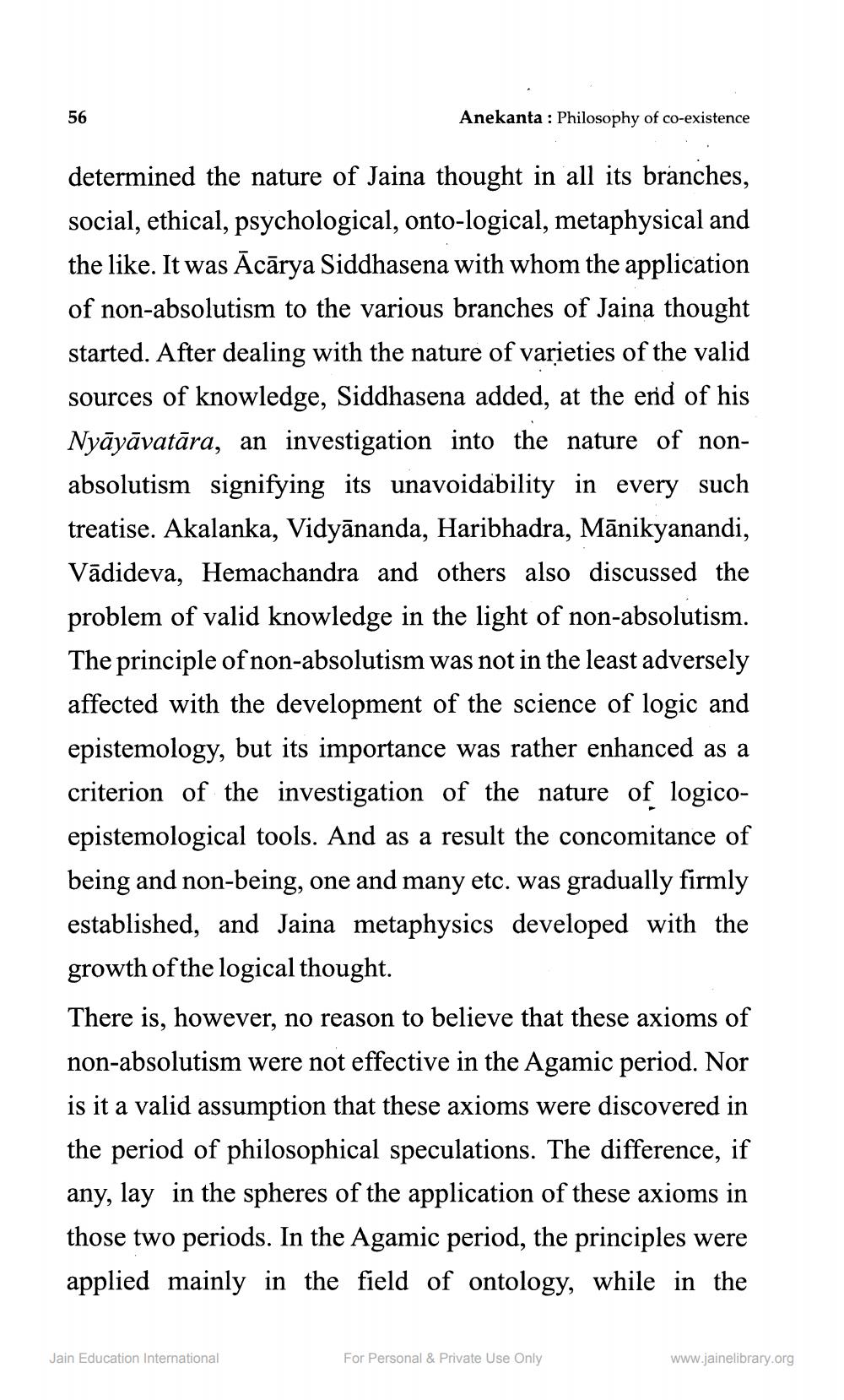________________
56
Anekanta : Philosophy of co-existence
determined the nature of Jaina thought in all its branches, social, ethical, psychological, onto-logical, metaphysical and the like. It was Ācārya Siddhasena with whom the application of non-absolutism to the various branches of Jaina thought started. After dealing with the nature of varieties of the valid sources of knowledge, Siddhasena added, at the end of his Nyāyāvatāra, an investigation into the nature of nonabsolutism signifying its unavoidability in every such treatise. Akalanka, Vidyānanda, Haribhadra, Mānikyanandi, Vādideva, Hemachandra and others also discussed the problem of valid knowledge in the light of non-absolutism. The principle of non-absolutism was not in the least adversely affected with the development of the science of logic and epistemology, but its importance was rather enhanced as a criterion of the investigation of the nature of logicoepistemological tools. And as a result the concomitance of being and non-being, one and many etc. was gradually firmly established, and Jaina metaphysics developed with the growth of the logical thought. There is, however, no reason to believe that these axioms of non-absolutism were not effective in the Agamic period. Nor is it a valid assumption that these axioms were discovered in the period of philosophical speculations. The difference, if any, lay in the spheres of the application of these axioms in those two periods. In the Agamic period, the principles were applied mainly in the field of ontology, while in the
Jain Education International
For Personal & Private Use Only
www.jainelibrary.org




